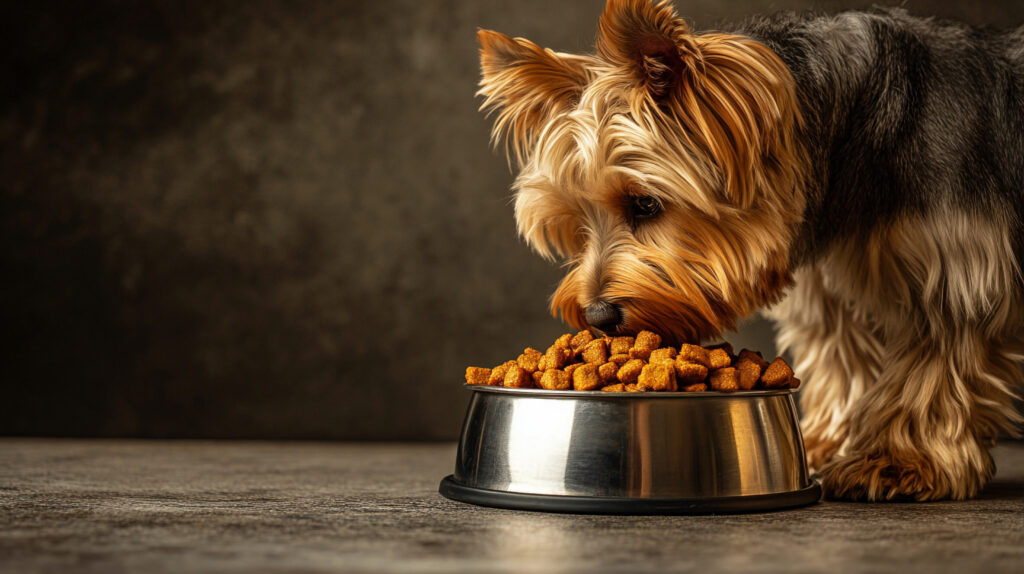The FDA Pet Food Recall 2025 has been issued for several popular dog and cat food brands after tests revealed possible contamination with harmful bacteria. This voluntary recall has raised concerns among pet owners across the United States, prompting everyone to check their pet food immediately to ensure their pets’ safety.
Keeping your pets safe begins with awareness — here’s everything you need to know about the FDA Pet Food Recall 2025, which brands are affected, and how to protect your furry family members.

Table of Contents
ToggleWhy the FDA Pet Food Recall 2025 Was Issued
he FDA Pet Food Recall 2025 was announced due to the potential presence of harmful bacteria, including Salmonella and Listeria monocytogenes. These bacteria can cause serious illness in pets and may also pose a risk to humans who handle the food.
Even healthy pets can carry these bacteria, which can spread to humans through contact. The recall is a precaution to prevent illness, emphasizing the importance of careful handling and monitoring of all pet food.
What makes this serious:
These bacteria can spread from animals to humans through direct contact.
Even healthy pets can carry bacteria and pass it through saliva, stool, or surfaces.
In humans, infections can be particularly dangerous for children, the elderly, or those with weakened immune systems.
Symptoms of Illness in Dogs and Cats
If your pet has eaten the recalled food, watch for any of these symptoms:
Vomiting or diarrhea
Fever or weakness
Loss of appetite
Excessive drooling or dehydration
Abdominal pain or bloating
If your pet shows any of these signs, contact your veterinarian immediately. Bring the product packaging or receipt — it helps the vet identify possible causes faster.
What Pet Owners Should Do?
Check your pet food label carefully.
Look for the brand name, lot number, and best-by date printed on the bag or can.Stop feeding the recalled product.
Even a small amount could cause illness.Dispose of it properly.
Seal the food in a plastic bag before throwing it away to prevent stray animals from accessing it.Clean everything.
Wash pet bowls, storage containers, and your hands with hot, soapy water after handling.Report any issues.
If your pet became sick, report it through the FDA’s Safety Reporting Portal — this helps authorities track outbreaks.
Health Risks for Humans
Pet food contamination doesn’t just affect pets. Humans can get infected too, especially after handling recalled products or touching contaminated surfaces.
Common human symptoms include:
Nausea, vomiting, or diarrhea
Fever and muscle pain
Headache or fatigue
In severe cases, bloodstream infections
Always wash your hands thoroughly after touching pet food or cleaning up pet waste.
Which Brands Are Affected?
While recall lists change frequently, several recent cases have included brands such as:
Blue Ridge Beef – raw frozen pet food
Mid America Pet Food – various dry dog food products
Victor, Eagle Mountain, and Wayne Feeds brands
Tuffy’s Pet Foods – certain dog treats
To see the latest updated list, visit the official FDA Pet Food Recall page.

How to Protect Your Pets in the Future
Buy from trusted retailers with proper storage and rotation practices.
Avoid feeding raw or undercooked pet food unless it’s been lab-tested.
Store food in airtight containers to prevent contamination.
Keep track of recall alerts — sign up for email notifications from the FDA or pet health organizations.
Practice hygiene — clean pet bowls daily and store food away from your own food supply.
❓ Frequently Asked Questions
Yes, most retailers will refund recalled products even without a receipt. Contact the store or the manufacturer’s customer service.
Monitor your pet for symptoms like vomiting or loss of appetite. If symptoms appear, contact your vet immediately.
Yes — contamination can spread through hands or surfaces. Always wash thoroughly after contact.
Yes, recalls happen regularly to ensure public safety. It doesn’t always mean a brand is unsafe long-term — it means they’re following FDA safety protocols.
Final Thoughts
Our pets depend on us for their health and safety. Staying informed about recalls is one of the best ways to protect them. Always read labels, handle pet food carefully, and stay updated through FDA recall alerts.
By taking small precautions, you’re not just keeping your pets safe — you’re also protecting your family.